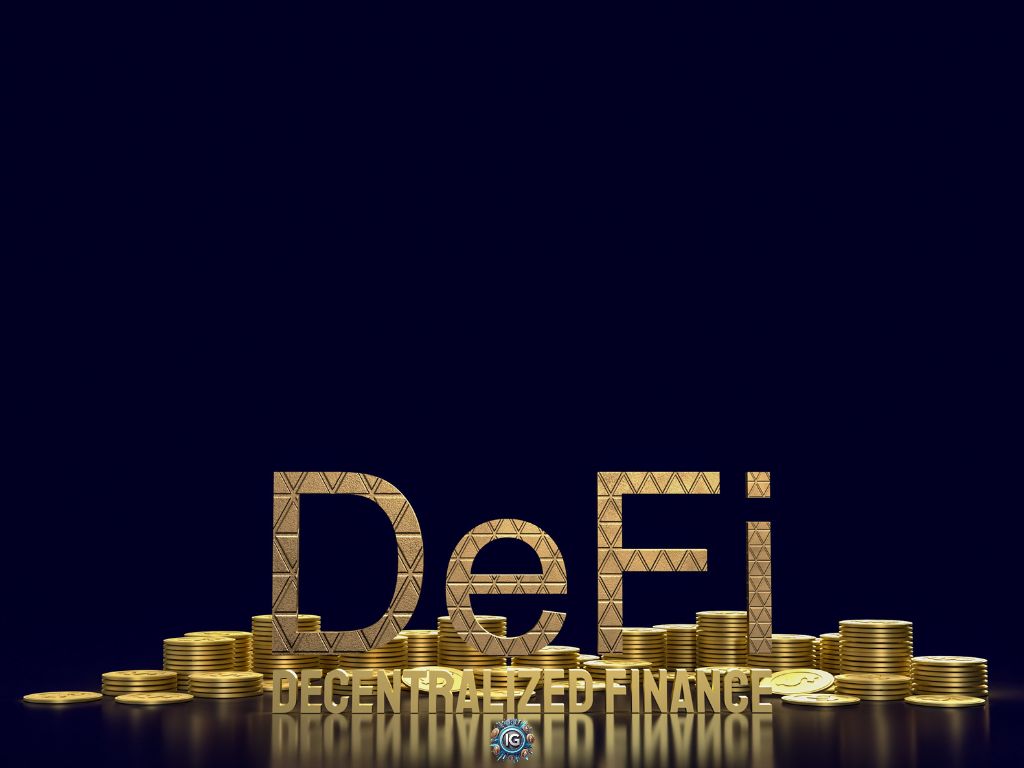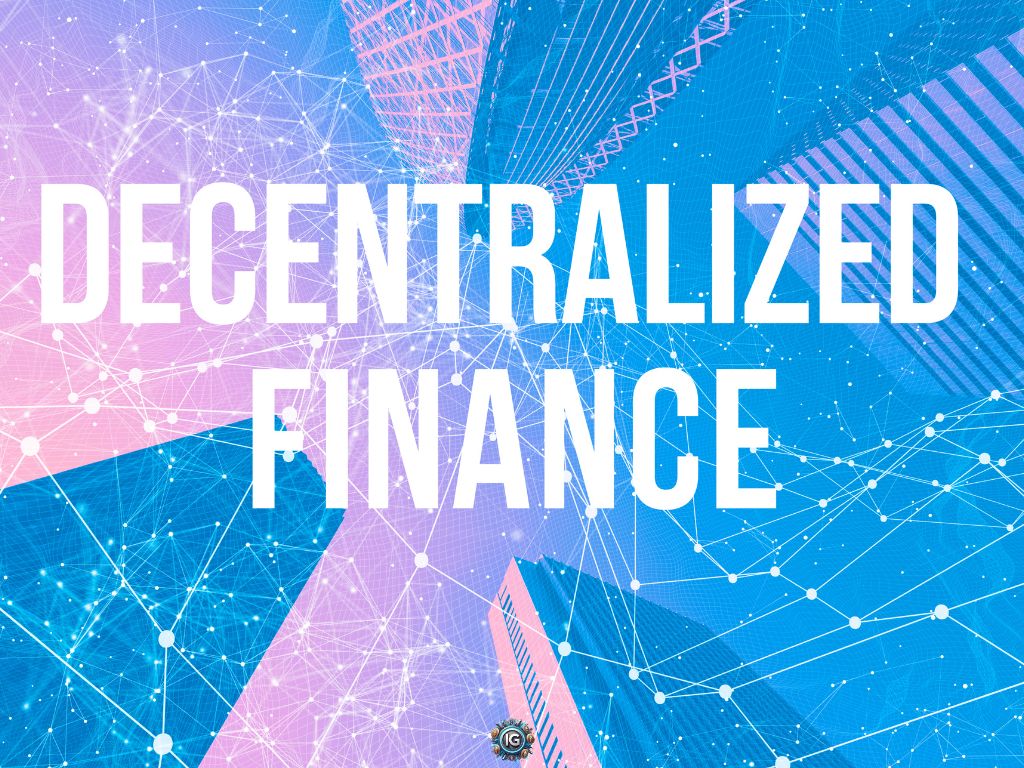Introduction
Blockchain is often talked about like a buzzword. But what if it’s something bigger something foundational?
Behind the headlines about Bitcoin and price charts is a quiet revolution in how systems are built and trusted.
Blockchain technology isn’t just powering cryptocurrencies, it’s forming the backbone of decentralized platforms, global finance, and entirely new ways of exchanging value.
And yet, for most people, blockchain still feels vague. Complicated. Overhyped.
This guide changes that.
Whether you’re new to crypto, curious about DeFi, or just trying to understand what all the talk is about, we’ll break it down in plain English from how blockchain actually works, to how it’s being used to build financial systems without banks, brokers, or borders.
You don’t need to be technical to grasp what’s coming next. You just need to understand the infrastructure behind it.
Key Takeaways
- Blockchain technology is a decentralized system for recording and verifying data without relying on a central authority.
- It works through a network of nodes that validate and store information in linked, tamper-proof blocks.
- Smart contracts enable automated, trustless transactions forming the foundation for decentralized applications (dApps).
- DeFi (Decentralized Finance) is one of blockchain’s most powerful use cases, replacing banks with programmable code.
- While blockchain brings transparency, security, and global access, it also faces challenges like scalability, regulation, and user safety.
- Understanding blockchain is essential to grasping how the next generation of finance, identity, and data ownership will work.

What Is Blockchain Technology?
At its core, blockchain technology is a system for recording information in a way that makes it almost impossible to change, hack, or cheat.
Unlike traditional databases that rely on a central authority (like a bank or corporation), a blockchain is distributed meaning every participant in the network has access to the same version of the truth. It’s a public, verifiable ledger of activity that anyone can inspect, but no one can secretly alter.
Once something is added to a blockchain, it’s permanently recorded and linked to the data before it. This creates a chain of blocks hence the name that becomes stronger with every transaction added.
A Simple Analogy
Imagine a shared Google Doc. Everyone in a group can see it, and when someone makes a change, the history is tracked forever. But here’s the twist: no one can delete anything, and changes only get saved if most of the group agrees they’re valid.
Blockchain works like that but with encryption, consensus rules, and zero central ownership.
This decentralized, tamper-resistant design is why blockchain is being used not just for cryptocurrency, but for voting systems, medical records, supply chain tracking, and the next generation of financial infrastructure.
⚙️ How Blockchain Works
To truly understand why blockchain is transforming entire industries, it helps to break down what’s actually happening behind the scenes not just the theory, but the process.
Blockchain is more than just a digital ledger. It’s a system that allows thousands of strangers, across the globe, to agree on the state of information without ever needing to trust each other.
Here’s how that happens:
🧾 1. A Transaction Is Initiated
It starts with a user action. That could mean sending cryptocurrency, executing a smart contract, or recording data (like a vote or medical record). This transaction request gets broadcast to the blockchain network.
🌐 2. The Network Verifies the Transaction
The transaction is picked up by a network of computers called nodes. These nodes communicate and validate the request according to predefined rules.
Validation isn’t based on trust, it’s based on math. Nodes use cryptographic algorithms to check that the sender has the right permissions (like enough funds or valid authorization).
To reach agreement, they rely on a consensus mechanism a process that ensures the network collectively agrees on what’s true.
The Two Most Common Consensus Mechanisms:
- Proof of Work (PoW): Used by Bitcoin. Miners solve complex puzzles to validate transactions and add new blocks. It’s energy-intensive but highly secure.
- Proof of Stake (PoS): Used by Ethereum 2.0 and others. Validators are chosen based on how much cryptocurrency they “stake” as collateral. It’s faster, more energy-efficient, and increasingly popular.
📦 3. The Transaction Is Grouped Into a Block
Once verified, the transaction doesn’t live on its own, it’s bundled with others into a block. Each block contains:
- A list of verified transactions
- A timestamp
- A cryptographic reference (called a “hash”) to the previous block
This is what creates a linked sequence of data: the blockchain.
🔗 4. The Block Is Added to the Chain
The new block is cryptographically attached to the last block in the chain. This connection is permanent and tamper-resistant. Any attempt to alter a past block would break the entire chain making fraud easy to detect and nearly impossible to execute.
🧠 5. The Blockchain Updates Across the Network
After a block is added, every node in the network updates its copy of the blockchain. This means no single person or server controls the system everyone shares the same version of the truth.
This decentralized model:
- Prevents tampering
- Increases resilience
- Creates a built-in audit trail
Why It Matters
This structure isn’t just clever, it’s revolutionary.
It enables trustless systems, where participants don’t need to rely on third parties. It makes data public and verifiable, yet secure and private. And it creates the perfect foundation for systems that were once unthinkable like finance without banks, which we’ll explore in the next section.
For now, just remember: blockchain works because no one owns it, everyone sees it, and no one can fake it.

💸 What Is DeFi?
DeFi short for Decentralized Finance refers to a new wave of financial applications built on blockchain technology. These systems offer services like lending, borrowing, trading, and earning interest but without relying on banks, brokers, or centralized institutions.
In DeFi, the middlemen are replaced by code.
Smart contracts self-executing programs stored on a blockchain automate every part of the process. Need a loan? A smart contract approves it instantly. Want to earn yield? A few clicks can lock your assets into a liquidity pool, and the contract handles the rest.
No branches, paperwork and no one telling you no.
How DeFi Is Different
In traditional finance:
- You need permission to open an account or take out a loan
- You rely on a centralized entity (like a bank) to safeguard your money
- Most systems operate in silos and are closed off from the global market
In DeFi:
- Anyone with an internet connection and a crypto wallet can participate
- Funds stay in your control not locked away in a bank
- Platforms are open-source, transparent, and global
DeFi applications live on public blockchains like Ethereum, and every action every trade, loan, or payout is verifiable by anyone. This isn’t just a new interface for money. It’s a complete restructuring of how financial systems can work.
Blockchain Makes It All Possible
Remember how blockchain removes the need for trust by making everything transparent and secure?
DeFi builds on that exact structure. The blockchain is the settlement layer, and smart contracts are the execution layer. Together, they allow users to interact directly, with no centralized party required.
This is why DeFi isn’t just a crypto trend, it’s a fundamental shift in who has access to financial power, and how that power is managed.

Key Applications of DeFi
DeFi isn’t just theory, it’s already being used by millions to borrow, lend, trade, and earn, all without touching a bank. Below are the most impactful applications driving adoption across the world.
🏦 Lending and Borrowing
Platforms like Aave and Compound allow users to lend their crypto to others and earn interest or borrow by locking up their own assets as collateral.
- No credit checks
- No paperwork
- Loans are issued in seconds, managed entirely by smart contracts
This unlocks financial access for people who are excluded by traditional systems.
🔁 Decentralized Exchanges (DEXs)
DEXs like Uniswap and SushiSwap let users trade cryptocurrencies directly with one another without a centralized platform holding their funds.
- You always control your assets
- Trades are executed via liquidity pools and smart contracts
- No signup, no identity verification
DEXs are disrupting how markets function by removing the need for middlemen and order books.
💰 Stablecoins
Stablecoins like USDC, DAI, and USDT are cryptocurrencies designed to maintain a consistent value often pegged to the US dollar.
- Used for payments, savings, and loans in DeFi
- Offer price stability while preserving blockchain speed and transparency
- Essential for users in unstable economies or high-inflation regions
🌾 Yield Farming and Staking
Users can earn passive income by providing liquidity or locking up assets on DeFi platforms.
- Yield farming: Supplying assets to liquidity pools in return for fees and token rewards
- Staking: Locking tokens to help secure a blockchain network and earn rewards
These are high-reward, high-risk strategies that require research but they offer returns far beyond traditional interest rates.
Want help calculating your potential earnings? Check out our Crypto Yield & Staking Tools.
DeFi is unlocking a financial system that works around the clock, without borders or gatekeepers. And this is only the beginning.

⚖️ Benefits and Limitations of Blockchain and DeFi
Blockchain and DeFi represent a reimagining of the systems we’ve relied on for centuries.
But revolutionary tools don’t come without trade-offs.
To truly understand their potential, you need to weigh what they make possible against what they still struggle to solve.
Benefits of Blockchain and DeFi
🔐 Security by Design
Blockchain is built on cryptographic principles and decentralized consensus meaning data is extremely difficult to alter or fake.
Every transaction is time-stamped, linked to the one before it, and stored across a distributed network. Unlike centralized systems that present single points of failure, blockchains are resilient by default.
In DeFi, smart contracts replace human intermediaries, reducing the chance of manipulation, error, or corruption. For example, when you lend funds on Aave, the rules of repayment and interest are locked into code no negotiations, no paperwork.
🌍 Global Accessibility
A smartphone and internet connection are all you need to access DeFi protocols. There’s no need for a bank account, credit history, or government ID. This is transformational for the 1.4 billion unbanked adults around the world, as well as for those living in inflation-heavy economies.
In places like Argentina or Nigeria, users increasingly rely on stablecoins and DeFi tools to protect their wealth and escape local currency instability.
🔎 Radical Transparency
On-chain activity is fully visible. You can trace how a DeFi protocol handles funds, verify reserves behind a stablecoin, or audit the governance history of a DAO all without relying on quarterly reports or opaque disclosures.
Compare this to traditional finance, where misreporting and hidden liabilities (like in the 2008 crisis) have burned millions of people. Blockchain flips that power dynamic visibility is a feature, not a favor.
⚙️ Permissionless Innovation
DeFi is a playground for financial innovation. Developers can build on existing protocols, remix smart contracts, and create entirely new models without needing licensing or approval from centralized authorities.
This has already led to:
- Flash loans (instant, uncollateralized borrowing)
- Tokenized real-world assets (RWAs)
- Decentralized insurance platforms
- Yield automation tools like Yearn Finance
No gatekeepers = faster iteration.
💸 Cost Efficiency
Banks and brokers charge fees because they need to manage systems, staff, and compliance. DeFi removes those layers. Once a smart contract is deployed, it runs 24/7 with no payroll, no vacation, and no overhead.
Users save through lower fees, faster settlement times, and direct ownership. It’s lean, efficient, and automated by design.
⚠️ Limitations and Risks
⛓ Scalability Bottlenecks
Most DeFi still runs on Ethereum, which has limited transaction throughput. During high demand, users face gas fees of $50–$100+ just to complete a simple action.
Layer 2 scaling solutions (like Arbitrum and Optimism) are improving this, but adoption is uneven and adds complexity for new users.
🐛 Smart Contract Vulnerabilities
Smart contracts are powerful but they’re not immune to flaws. Bugs in the code, logic errors, or malicious design can result in millions lost. In 2022 alone, over $3 billion was lost to DeFi exploits and protocol failures.
Even well-audited projects like Compound or Curve have faced critical issues. Code may be law but bugs still write the fine print.
🧭 Regulatory Gray Zones
DeFi’s global, permissionless nature makes it hard to regulate but also hard to protect. KYC, taxes, and legal accountability are still evolving. Some jurisdictions may restrict access to DeFi entirely, while others may enforce user disclosures and licensing.
Until global frameworks catch up, users bear the risk of unclear rules and projects may shift locations, features, or access based on enforcement.
🧠 User Risk and Complexity
From signing smart contract transactions to understanding slippage, impermanent loss, or multi-chain bridges DeFi can be intimidating.
Mistakes are often irreversible. If you send funds to the wrong address, approve a malicious contract, or fall for a phishing site… there’s no “undo” button.
The Bottom Line
Blockchain and DeFi unlock powerful tools: control, transparency, and access. But they also demand new skills, greater personal responsibility, and a willingness to learn.
They’re not a shortcut. They’re a system shift.

🔮 The Future of Blockchain and DeFi
While blockchain and DeFi have already disrupted traditional systems, we’re still in the early chapters of their evolution. The tools are being tested. The infrastructure is maturing. And the next wave of innovation is already reshaping what’s possible.
Here’s what to watch:
🧩 Layer 2 Scaling Solutions
To solve the bottlenecks of slow transactions and high fees, developers are building Layer 2 networks protocols that run on top of base blockchains like Ethereum.
- Optimistic Rollups (e.g., Optimism, Arbitrum) batch transactions and settle them periodically
- zkRollups use zero-knowledge proofs for fast, secure transaction bundling
These solutions allow users to interact with DeFi faster and cheaper without sacrificing security.
🌍 Tokenization of Real-World Assets
Blockchains are now being used to tokenize everything from real estate and stocks to art, invoices, and commodities. This means ownership of physical assets can be represented digitally and traded globally in seconds.
It also opens the door for on-chain lending, insurance, and investing tied to traditional markets.
🔁 Cross-Chain Interoperability
Right now, DeFi is fragmented across multiple blockchains Ethereum, Solana, Avalanche, and more. But that’s changing.
Projects like ThorChain, Cosmos, and Polkadot are creating bridges between networks, allowing assets and data to flow freely across ecosystems. This is laying the groundwork for a fully connected financial layer of the internet.
🤖 AI and Blockchain Integration
Artificial intelligence and blockchain may seem like separate domains but together, they’re unlocking next-gen automation.
- AI can optimize DeFi yield strategies in real-time
- Blockchain adds transparency and accountability to AI decision-making
- Together, they’re enabling smarter DAOs, adaptive protocols, and autonomous financial agents
Want to explore this in depth? See our full guide to AI and Blockchain.
🧱 Institutional Adoption
As compliance tools improve and regulations clarify, banks, asset managers, and governments are moving in. From CBDCs (central bank digital currencies) to tokenized bonds and blockchain-based identity systems, traditional institutions are starting to plug into the same rails DeFi pioneered.
The difference? You’ll have the choice to engage with both.
What It All Means
Blockchain isn’t going away. DeFi isn’t a trend. These aren’t alternatives to the current system, they’re the prototypes for what’s next.
The question isn’t whether this infrastructure will become mainstream. It’s how and how fast.

❓ Frequently Asked Questions
What’s the difference between blockchain and DeFi?
Blockchain is the foundational technology a decentralized, tamper-proof ledger. DeFi (Decentralized Finance) is one of the most powerful applications built on that foundation, offering financial services like lending and trading without banks or intermediaries.
Is blockchain only used for cryptocurrency?
No. While cryptocurrency was blockchain’s first use case, the technology is now used in supply chains, healthcare, digital identity, voting systems, and more. Anywhere that trust, transparency, and security are needed, blockchain has potential.
How do smart contracts work in blockchain and DeFi?
Smart contracts are self-executing programs stored on the blockchain. They automatically enforce terms like paying interest or transferring assets based on conditions you can verify but can’t change. In DeFi, they replace the role of banks, lawyers, and middlemen.
Is DeFi safe to use?
DeFi gives you full control but also full responsibility. Risks include smart contract bugs, phishing scams, and losing funds if you make a mistake. Start small, use reputable platforms, and consider cold storage wallets for security. See our Wallet Security Guide to learn more.
Can I use DeFi without owning cryptocurrency?
Not yet. Most DeFi platforms require you to hold and use crypto assets like ETH, DAI, or USDC. However, some platforms are integrating fiat on-ramps to make access easier for non-crypto users.
Is blockchain regulated?
Blockchain technology itself is not regulated but how it’s used can be. DeFi platforms, crypto exchanges, and token issuers may be subject to laws depending on your country. Regulatory frameworks are still evolving.
Will blockchain replace banks?
Blockchain won’t eliminate banks, but it will reshape their role. DeFi shows that programmable finance can work without institutions. Some banks are adopting blockchain for backend systems, while others may compete with or integrate DeFi in the future.

🧠 Final Thoughts: Blockchain Isn’t the Future, It’s the Framework
Blockchain isn’t just some tech trend. It’s a system. A structure. A quiet framework that’s already changing how we build, move, and manage value in the digital world.
DeFi is just the beginning. It shows us what’s possible when you control your assets, code replaces gatekeepers, and trust is built into the system.
But none of this is automatic.
The more you understand how this infrastructure works, the better equipped you’ll be to use it wisely whether that means participating in a DAO, exploring yield opportunities, or simply securing your crypto the right way.
If you’ve made it this far, you’re not just learning blockchain. You’re thinking differently about who holds the keys and who should.
Learn how the Blockchain is transforming the Supply Chain.
1 thought on “Blockchain Technology: The Infrastructure No One’s Talking About”